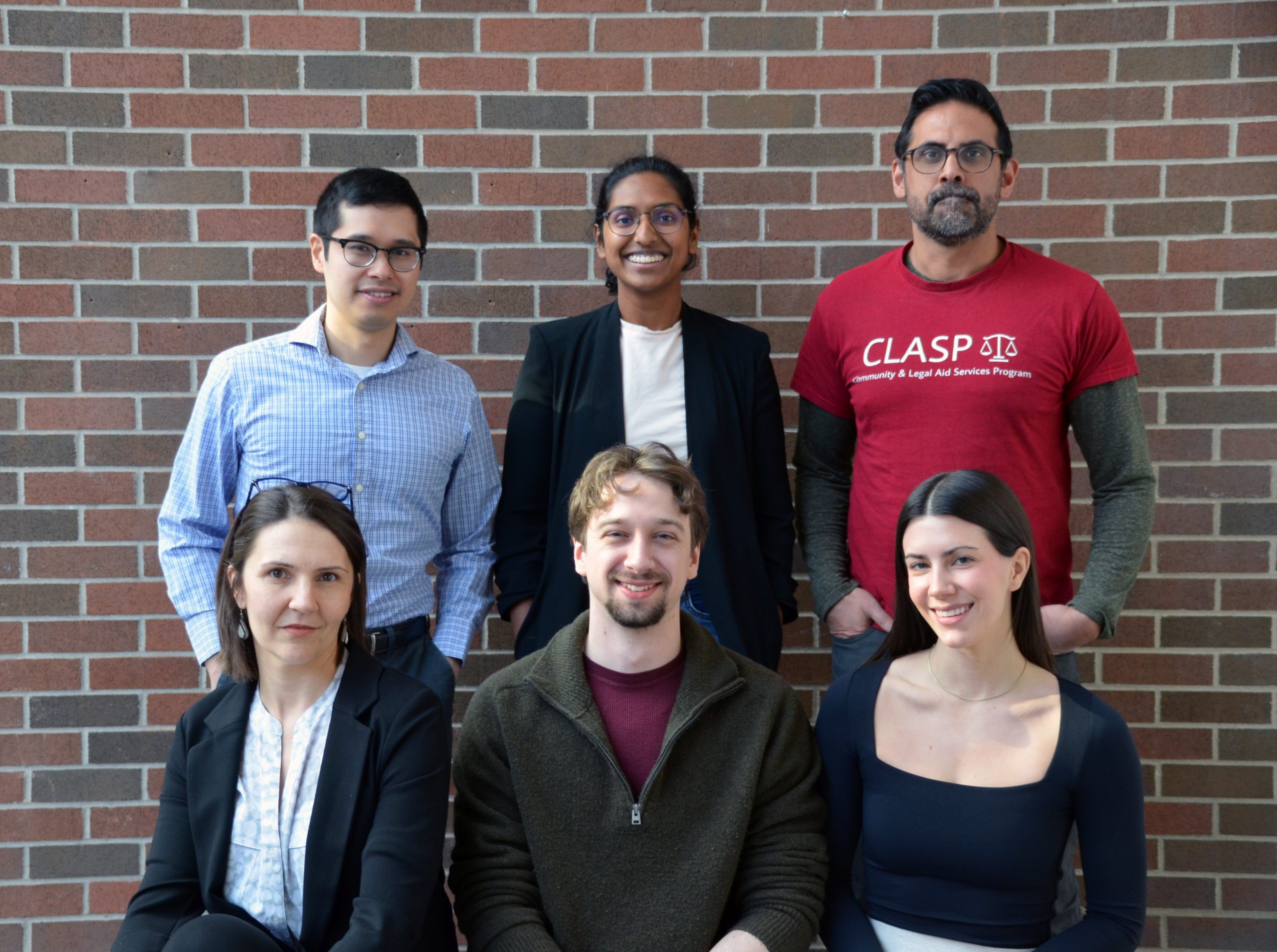A legal team from Osgoode Hall Law School’s Community & Legal Aid Services Program (CLASP) is working to obtain Canadian citizenship for a Somali man who was incarcerated in a maximum-security prison for more than five and a half years without charge under Canada’s controversial immigration detention system.
Abdirahaman Warssama’s tragic story was detailed in an investigative report by CBC journalist Brigitte Bureau published Jan. 31.
Warssama was released in December 2015. But in part due to his imprisonment – including being the victim of an assault by fellow inmates – he now suffers from psychological trauma and physical disabilities. Despite being in Canada for more than three decades, an improper delay in obtaining his permanent residency (PR) status has resulted in him not meeting the residency requirement necessary to obtain citizenship in Canada.
“Essentially, we are seeking an exemption to the requirement that he be a PR for five years before he can apply for citizenship,” said Subodh Bharati, CLASP’s supervising lawyer for the Immigration Law Division. “Mistreatment by Canadian authorities is a large part of why he doesn’t have citizenship. He also fears being put back in jail for immigration removal until he is a citizen.”
As the CBC report outlines, Canada’s Immigration and Refugee Protection Act (IRPA) enables the Canada Border Services Agency (CBSA) to hold foreign nationals in maximum security prisons indefinitely if the Immigration and Refugee Board (IRB) determines they present a flight risk, their identity is not well established, or they present a danger to the public.
“Learning about Mr. Warssama’s case was an enormous shock,” said Owain Guinn, a 2L student with CLASP who is working on the case. “A situation like that should never be allowed to happen in Canada.
“I appreciate the opportunity to tell Mr. Warssama’s story,” he added, “and to help him obtain citizenship in the country that has been his home for more than 30 years.”
Warssama originally arrived in Canada in 1989 in search of freedom and safety. He and his brother had been imprisoned and tortured in Somalia, falsely accused of being part of a rebel group, and his father had been killed. Although his refugee claim was denied, he was later granted permission to stay in Canada on humanitarian grounds. A decision on his first PR application was delayed for more than 15 years. Then, after committing a minor criminal offence, he was deemed inadmissible to Canada.
Even though he was not considered dangerous, CBSA put him in prison pending his deportation to Somalia. But because the country was considered dangerous, the agency was unable to deport him and he languished in jail for almost six years. Unlike convicted criminals, immigration detainees have no idea when their detention in prison will end, even though the IRB is responsible for regularly reviewing the reasons for their detention.
Warssama has since been pardoned for his offence and has obtained permanent residency. While he pursues his citizenship through CLASP, he is also suing the CBSA for mistreatment.
“Most students or people in Canada don’t realize the injustices that happen in immigration detention,” Bharati told CBC. “They have even less rights than accused criminals.”
By helping Warssama obtain citizenship, CLASP is hoping to help alleviate some of the suffering he endured at the hands of Canadian immigration authorities.
CLASP is one of 17 clinical programs available to Osgoode students and exemplifies the law school’s leadership in experiential legal education in Canada. CLASP handles cases in the areas of immigration, criminal and administrative law, including refugee claims and PR applications, immigration detention hearings, summary conviction criminal charges, record suspensions, human rights cases and tenants’ rights disputes.
